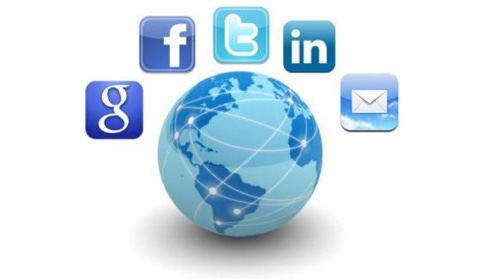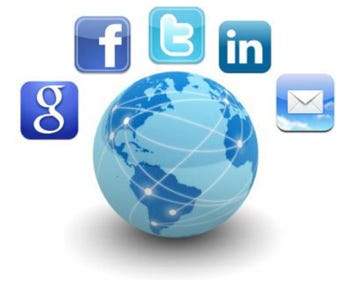Mobile solutions yield increased access, value-added interactions, and business intelligence for device companies.
September 14, 2012

Medical device sales and marketing teams can no longer ignore the use of mobile technology. Its rise in adoption by these teams is rapidly becoming the key differentiator in reaching target audiences and optimizing operations in a cost effective way with a great impact. Mobile technology represents a significant new way to improve sales performance through increased access to key stakeholders and integration of product messaging into their daily lives.
|
Customer Access and Data: The Mobile Differentiator
The days of a sales representative sitting down with a customer to walk through a PowerPoint presentation are quickly evaporating. In the fast paced, get-it-done-yesterday world in which we live, it’s often a few minutes of face-to-face engagement at best. Mobile applications and business-related social networks will help differentiate a company with the ‘e-detailing’ (industry term for various online physician marketing, promotional and communication activities) process moving forward, as they allow for a more enriched, personal experience. The key differentiator in this equation is the increase in number and quality of communication channels between the customer and the manufacturer, and the speed and access of these channels.
Mobile device usage by healthcare professionals is rapidly growing. A study by Bulletin Healthcare found that physician mobile usage grew 45% in 2012 alone.1 Such staggering statistics present a fantastic opportunity for the manufacturer to take advantage of a new sales and marketing channel before it becomes oversaturated. Using targeted mobile brand applications provides an interactive way to present valuable information to customers, and enable the sales rep to better communicate value-based messages.
Some device manufacturers have already taken advantage of this opportunity through product-specific apps that ‘e-detail’ and streamline their presentations for a more concise and interesting view of the product. Within one powerful app, a sales representative can access and present key selling messages and brand info; follow up information specific to patients, healthcare professionals, and hospitals; and useful tools such as patient adherence and profiling apps. When everything necessary for sales enablement is accessible through a single app, your message is clear and well received, regardless of having two minutes, two hours, or a face-to-face meeting with a customer.
The New Mobile Toolkit: Intelligence and Analytics
With the emergence of modern and innovative handheld devices such as iOS- and Android-based smartphones and tablets, companies are looking to extend their business intelligence environments by making them accessible to mobile users. Several factors have been observed in the industry and have accelerated adoption of mobile business intelligence, specifically:
Users are looking for similar user experiences on both mobile devices and desktop/laptop computers.
The need for solutions that meet the demands from both management and line-of-business users to improve productivity and time efficiency.
The need to combine different insights, qualitative and quantitative, into a single comprehensive dashboard.
The use of mobile enterprise portals and product-specific apps can meet these needs, and provide invaluable resources to your sales force with an all-inclusive toolkit that is available at all times. This toolkit can include educational games, patient adherence applications, and mobile sales and marketing portals. Your personalized toolkit helps to build awareness, education, and sales by connecting the sales representative to a wealth of resources. Detailed analytics enhance their performance by providing insights into their efforts, allowing them to adjust and refocus as needed to drive more effective results.
Here’s the bottom line: Implementing a custom toolkit for your organization enables more effective tracking of goals versus. performance for the sales and marketing teams. For better perspective, the following are some examples of apps that can be included in a customized toolkit:
e-Brochureware. Allows for better communication and distribution of your product messaging to all possible customers.
Patient Adherence Apps. Track use of your product by the patient, allowing them to track progress and the manufacturer to gain powerful business metrics.
Mobile CRM Apps. Enable more efficient use of internal systems while on the road.
Mobile Marketing: Expanding Impressions
Mobile marketing presents greater benefits when compared to traditional e-marketing. The residual cost of mobile marketing is much lower and less frequent, behavioral profiles are richer and more detailed for tracking customers, and the reach is much greater due to accessibility anywhere, anytime.
While the use of social media is still in its infancy as it relates to mobile marketing in the life sciences industry, there is tremendous potential in leveraging its reach and possible benefits to patients and healthcare practitioners. Without FDA guidance, third-party organizations like the Digital Health Coalition (DHC) are forging guiding principles on social media usage including responsible use, reporting, disclosure, and patient advocacy. The DHC guidelines mainly focus on strengthening and increasing the speed of communication to the public from a manufacturer in cases of recalls, adverse events, etc.
A thorough understanding of the new mobile landscape and leveraging advisory services from knowledgeable consulting firms is warranted. Without a predefined mobile strategy, a lot of time and money will be wasted on implementing and reimplementing technologies and business practices as the landscapes changes, and platforms are flawed or become outdated.
Prime examples are corporate Facebook pages where comments are enabled. Ultimately, some of the people who are most likely to comment are those with the most critical, negative perception of a company’s brand or products. Your strategy for funneling the feedback of customers is critical, and the resources and costs to premoderate a Facebook brand page can be high. There is also the fundamental decision not to moderate comments if you enable them in the first place. These decisions may seem trivial, but the effect of poor strategy and implementation can be a nationwide public relations debacle.
Technology Choices Drive Costs and Capabilities
As with any technology endeavor, there are critical choices to be made between building your own platform and buying off-the-shelf software. Just as crucial are the choices of underlying technologies employed but have the potential for high costs and lack of flexibility. It’s important to create a mobile strategy for your organization, as all technologies should be standardized across the company to ensure successful implementations and acceptance by the users.
One issue that will be encountered, regardless of how solid one’s mobile strategy may be, is the velocity of change for these new technologies. Keeping up with roll outs and upgrades can be daunting, as in the mobile era these are available almost on a daily basis, or at least it can feel that way. It’s important to have a mobile technology expert who can focus on this initiative to ensure that the platforms are adaptable and well suited to the requirements of an organization.
It’s All About the Data: Measure, Analyze, Adapt, Achieve
Metrics are perhaps the most important aspect of implementing mobile technologies. As previously mentioned, mobile technology creates the ability to track a physician’s interactions with a representative, track performance versus goals for that representative, and provide him with a custom toolkit. It also allows the entrance into new marketing practices on a social and mobile level.
Now that the strategy is in place and the technology has been implemented, the data is accessible to the organization. Using this data to perform analytics will result in business intelligence that allows a manufacturer to accurately calculate the return on investment (ROI) of the mobile solutions, and adjust as necessary for optimal results. Without this intelligence, funding is spent blindly on what may essentially be a standalone mobile version of a presentation.
This is one of the most important portions of a mobile strategy. Implementing the technology, creating a process, and training the users are only half the battle. It’s the adjustments made through the business metrics collected that will generate the optimal ROI for an organization. So as in any situation, it’s important to define business objectives and adjust the approach based on the business intelligence that this new set of data can provide. So focus on the data, because as we all know, garbage in ultimately generates garbage out.
Mobile Technology ROI
Mobile solutions yield significant value in both sales force effectiveness and brand impact and recognition. Sales representative to customer interactions become more value driven, and as a result, relationships strengthen and access increases, all while enabling the collection of critical business metrics. Brand awareness increases as your toolkit is available to all forms of customers at all times, a model that never existed in the past, which is now a key differentiator.
Mobility: The Path Forward
Mobile technology is becoming a large part of the life sciences sales and marketing ecosystem, and companies should be implementing mobile strategies to stay ahead of the curve. Mobility allows for the increased reach and effectiveness of the sales force through goal driven analytics, and a proven approach for educating healthcare professionals, hospitals, and patients about the products. Mobile technology strategies will be an important component to company growth and expansion in the years to come. Implementing a strategy early on will allow for better metric-driven success to generate the optimal ROI for an organization.
Reference
1. “Physician Mobile Use Grows 45%; Apple Dominates Android and Blackberry,” Bulletin Healthcare (Reston, VA: March 2011).
| Richard Butler is a managing consultant of mobility and contract management solutions for Alliance Life Sciences Consulting Group. He has nearly 20 years of experience implementing enterprise solutions, including mobile contract and revenue management, contract lifecycle management, sales and marketing, master data, and reporting and analytics systems. His strengths focus on delivery assurance and management of these solutions acting as a value driven, trusted advisor to clients. |
About the Author(s)
You May Also Like




